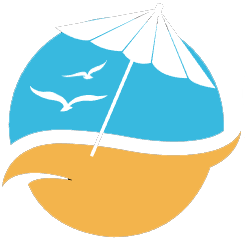It’s no secret that traditional knowledge holds a wealth of wisdom and insights that can help to guide us in protecting and preserving our natural resources. In recent years, there has been a growing recognition of the importance of incorporating traditional knowledge into conservation efforts, particularly when it comes to protecting our coastlines and beaches.
One group that has long understood the importance of traditional knowledge in conservation is Native American communities. For generations, Native American tribes along the coastlines have relied on their traditional knowledge to sustainably manage their lands and resources. Now, as climate change and development threaten the health of our beaches and coastal ecosystems, these communities are once again turning to their traditional knowledge to help revive and protect their shores.
One such example can be found in the efforts of the Quinault Indian Nation in Washington state. The Quinault people have lived along the shorelines of the Pacific Northwest for thousands of years, and their traditional knowledge of the land and sea has been passed down from generation to generation. As sea levels rise and storms become more frequent and intense due to climate change, the Quinault people have seen their beaches erode and their coastal ecosystems degrade.
In response, the Quinault Indian Nation has partnered with scientists and conservationists to implement traditional knowledge-based strategies to restore and protect their beaches. One key aspect of their approach has been the restoration of natural vegetation along the shorelines. The Quinault people have long understood the importance of coastal vegetation in stabilizing the shoreline, providing habitat for wildlife, and filtering pollutants from runoff. By planting native dune grasses and other vegetation, the Quinault people are helping to rebuild the natural resilience of their beaches.
In addition to restoring vegetation, the Quinault Indian Nation is also drawing on their traditional knowledge of sustainable fishing practices to protect their coastal ecosystems. By implementing traditional fishing bans during spawning seasons and limiting the harvest of certain species, the Quinault people are helping to ensure the long-term health of their fisheries and marine ecosystems.
The efforts of the Quinault Indian Nation are just one example of how traditional knowledge can be instrumental in reviving and protecting our beaches. Across the country, Native American tribes are working to incorporate traditional knowledge into their conservation efforts, drawing on centuries of wisdom to protect their lands and resources for future generations.
In California, the Amah Mutsun Tribal Band has been working to restore coastal habitats and protect sacred sites along the Central Coast. Drawing on their traditional knowledge of the land and sea, the tribe has been working with scientists and conservationists to implement restoration projects that are culturally and ecologically sensitive.
In the Great Lakes region, the Menominee Indian Tribe of Wisconsin has been leading efforts to protect their tribal lands and waters from the impacts of climate change. Drawing on their traditional knowledge of forest management and sustainable agriculture, the tribe has implemented practices that help to restore and protect their ecosystems, including their beaches along Lake Michigan.
These examples highlight the importance of incorporating traditional knowledge into conservation efforts. By drawing on the wisdom of indigenous communities, we can learn valuable lessons about how to protect and preserve our natural resources in a way that is sustainable and respectful of the land.
In addition to the environmental benefits, incorporating traditional knowledge into conservation efforts can also help to foster a deeper connection to the land and sea. For Native American communities, traditional knowledge is not just about practical strategies for managing resources – it is also about a spiritual connection to the natural world. By reviving and honoring traditional knowledge, we can learn to see the land and sea not just as resources to be exploited, but as living entities that deserve our respect and care.
As we continue to face the challenges of climate change and environmental degradation, it is clear that traditional knowledge has an important role to play in guiding our conservation efforts. By working together with indigenous communities and drawing on their traditional wisdom, we can create a more sustainable and resilient future for our beaches and coastlines. It is time to listen to the voices of the past and embrace the knowledge that has sustained communities for generations. It is time to revive traditional knowledge and protect our beaches for generations to come.



